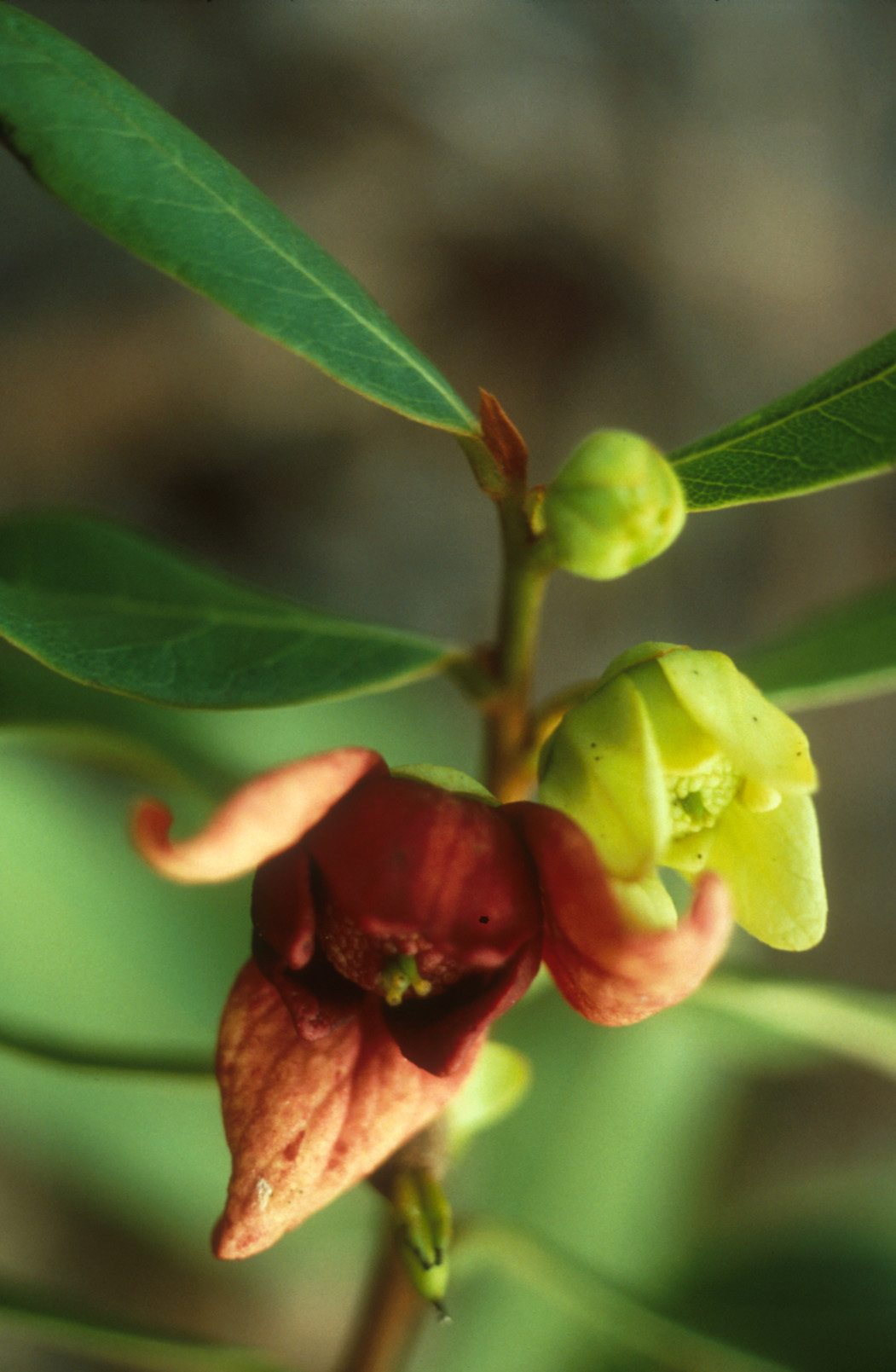
National Collection Spotlight: Four-petal pawpaw
Some plants are naturally rare, which makes them more susceptible to threats. The four-petal pawpaw (Asimina tetramera) may never have been abundant, but habitat loss and fragmentation have winnowed the remaining individuals down to just a few, with additional challenges of questionable reproductive success, narrow endemism, and escalating pressure on land use leading to the species being listed as federally endangered in 1986.
This aromatic shrub features flowers that go from cream to dark maroon as they mature. Found in the wild only in sand pine scrub habitats on the Atlantic Coastal Ridge in southeast Florida, it has also found a home on the grounds of Bok Tower Gardens and in the micropropagation lab of Cincinnati Zoo and Botanical Garden. The oblong greenish-yellow fruits are not at all related to papaya, which is also called pawpaw. Although the ripe fruits smell of bananas, humans do not eat them. However, raccoons, gopher tortoises, and mice are fans and regularly eat the fruit.
Learn more about the fascinating and endangered four-petal pawpaw on its National Collection Plant Profile, and support its conservation with a Plant Sponsorship.